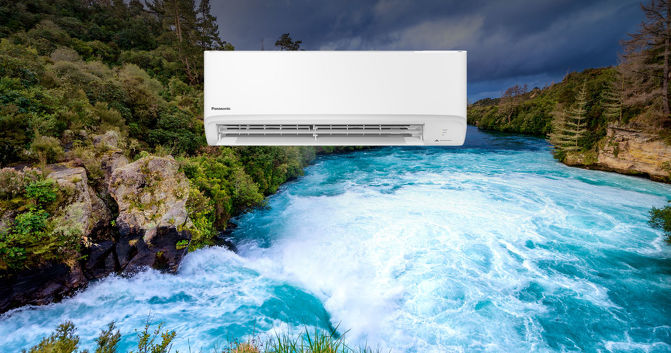Blog

Heat Pumps vs. Traditional Heating Systems: A Comparison
Choosing the right heating system for your home is crucial, as it impacts both your comfort and energy bills. In New Zealand, homeowners often face a choice between modern heat pumps and traditional heating systems like wood burners, electric heaters, and gas heaters. This blog will compare these options, highlighting the benefits and drawbacks of each to help you make an informed decision.
Contact us1. Energy Efficiency
Heat Pumps:
Heat pumps are renowned for their energy efficiency. They transfer heat rather than generate it through combustion or electrical resistance. For every unit of electricity consumed, heat pumps can produce three to four units of heat, making them up to 400% efficient. This high efficiency translates to lower energy bills and reduces environmental impact.
Traditional Heating Systems:
Wood Burners: Wood burners can provide a cosy atmosphere but are generally less efficient. A wood burner's efficiency depends on the wood's quality and the burner's design, with modern models being more efficient than older ones. However, they still typically convert less than 75% of the energy in the wood into heat.
Electric Heaters: Electric resistance heaters are straightforward but inefficient. They convert only 100% of the electricity they consume into heat, which means higher energy consumption and increased costs.
Gas Heaters: Gas heaters, particularly modern models with high energy star ratings, can be efficient. However, they are generally less efficient than heat pumps, converting about 70-90% of the energy from the gas into heat.
2. Environmental Impact
Heat Pumps:
Heat pumps are environmentally friendly, especially when powered by New Zealand’s predominantly renewable energy grid. They produce no direct emissions and contribute significantly to reducing greenhouse gas emissions compared to fossil fuel-based heating systems.
Traditional Heating Systems:
Wood Burners: Wood burners release particulate matter and carbon dioxide when burning wood. Although wood is a renewable resource, burning it can still contribute to air pollution and health issues.
Electric Heaters: While they don’t produce emissions on-site, their overall environmental impact depends on the source of the electricity. In New Zealand, where a large portion of electricity comes from renewable sources, the impact is mitigated but still higher than that of heat pumps.
Gas Heaters: Gas heaters produce carbon dioxide and other pollutants. While they may be cleaner than wood burners, they still rely on fossil fuels, contributing to greenhouse gas emissions.


3. Cost of Operation
Heat Pumps:
Despite a higher initial investment, heat pumps are cost-effective in the long run due to their high efficiency and lower operating costs. Over time, the savings on energy bills can offset the initial purchase and installation costs.
Traditional Heating Systems:
Wood Burners: Wood costs vary, but it can be a cheaper heating option in areas where wood is plentiful. However, the efficiency of wood burners means that more fuel is required to produce the same amount of heat as a heat pump.
Electric Heaters: Electric heaters are generally inexpensive to purchase but costly to run due to high electricity consumption.
Gas Heaters: Like everything, the cost of natural gas has risen recently, around 14.3%, which translates to about 18 cents per day for residential customers. While still considered a good option for heating, New Zealand’s move towards a net-zero future means it may not remain a good option or a relatively cheap one forever. Gas heaters can also be expensive to run if their efficiency is not high.
4. Convenience and Maintenance
Heat Pumps:
Heat pumps are easy to use, with the ability to switch between heating and cooling modes. They require minimal maintenance, typically needing only regular filter cleaning and periodic professional servicing.
Traditional Heating Systems:
Wood Burners: Wood burners require a steady supply of wood, regular cleaning of ash, and chimney maintenance to prevent creosote buildup.
Electric Heaters: These heaters are virtually maintenance-free but must be monitored to prevent fire hazards.
Gas Heaters: Gas heaters require regular maintenance to ensure safe operation and efficiency. This includes checking for gas leaks and servicing the burner and heat exchanger.
Conclusion
When compared to traditional heating systems, heat pumps stand out for their energy efficiency, lower environmental impact, and cost-effectiveness over time. They offer the added convenience of heating and cooling, making them a versatile choice for New Zealand homes. The one thing that really sets all these traditional heating systems apart from a heat pump is that they can’t cool your home in summer!


